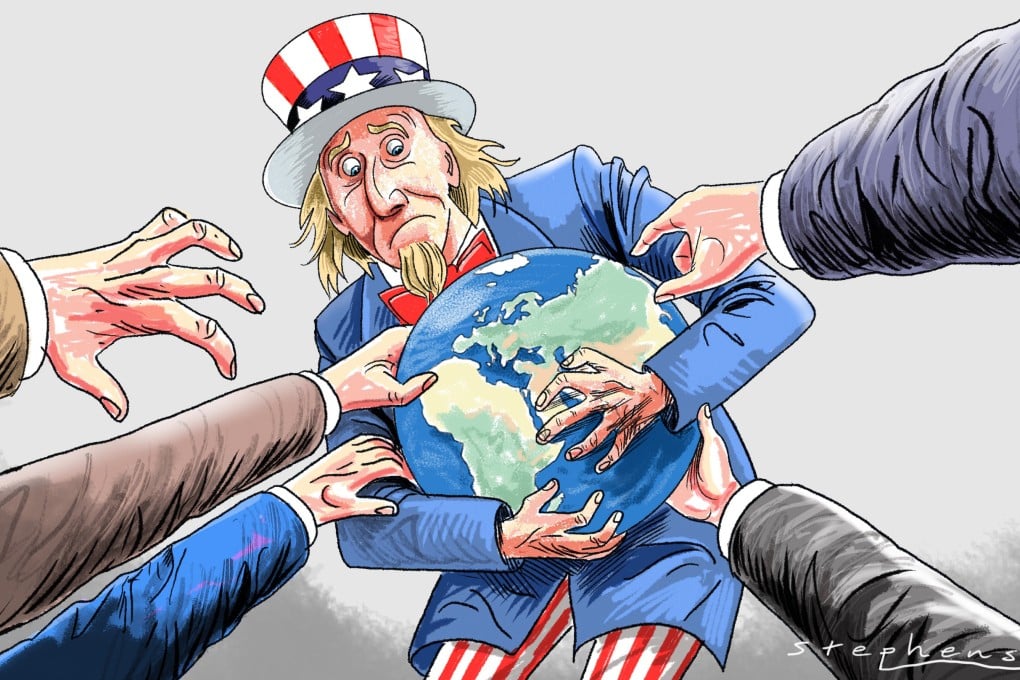Advertisement
Opinion | Imagine a world free from the oppression of a US-led global order
- It would spell the end of the US ability to impose its will on the international community, shape other countries in its image and shift the burden of its economic crisis onto others
Reading Time:4 minutes
Why you can trust SCMP
36

A spectre is haunting Washington. It is what Malaysian Prime Minister Anwar Ibrahim recently described as “China-phobia”. Just as some neurotic people see ghosts in broad daylight, so American politicians watch China’s every move with suspicion and apprehension. They view Chinese products such as 5G equipment, port cranes and cars as Trojan horses, and are working hard towards a TikTok ban on national security grounds.
Beneath Washington’s fear lies the perception of China as a major adversary, which it believes is intent on destroying the “rules-based international order”. What would an upending of the system mean for Washington?
To start with, it may spell the end of US domination in global affairs. The so-called rules-based international order, invented and perpetuated by Washington and its Western allies, allows the US to impose its will on the international community.
Advertisement
If upturned, it would probably end the US ability to single-handedly block the decisions of international organisations, as it did with recent UN Security Council resolutions on the Palestinian-Israeli conflict, and the working of the World Trade Organization’s dispute settlement system, paralysed after the US obstructed the appointment of judges to the appellate body, reportedly for 60 consecutive times at WTO meetings.
Washington would also find it difficult to call the shots at the World Bank and the International Monetary Fund. In these two institutions, votes on substantive issues need 85 per cent approval. The US, with its vote shares of over 15 per cent at the World Bank and 16.5 per cent at the IMF, has effective veto power.
Advertisement
World Bank presidents have traditionally been American. But if there is a major change in the institutional set-up, this position would more likely be occupied by an Asian, African or Latin American, chosen on ability rather than nationality.
Advertisement
Select Voice
Choose your listening speed
Get through articles 2x faster
1.25x
250 WPM
Slow
Average
Fast
1.25x
